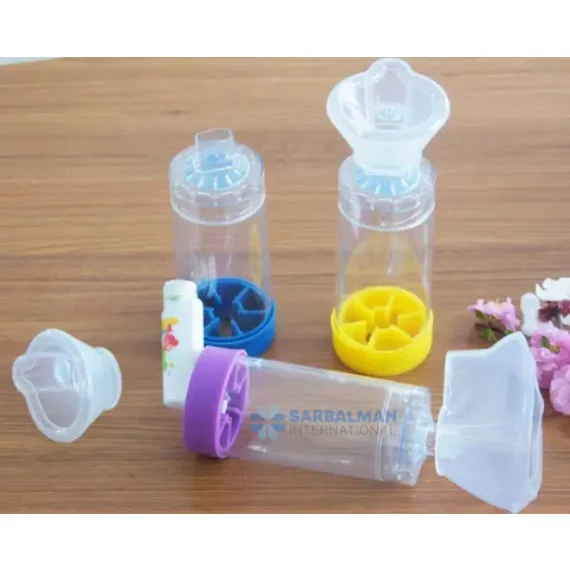Aerosol Spacer
Free!
An aerosol spacer is a valved chamber that connects to a pressurized inhaler to make each puff easier to breathe in and more effective. It improves lung delivery, reduces throat irritation, and removes the need to perfectly time your breath. Choose a mouthpiece or mask, clean it easily, and use it at home, in clinics, or on the go. A simple upgrade that turns good inhalers into great results.
Description
An Aerosol spacer, also called a valved holding chamber, is a lightweight tube that attaches to a pressurized metered dose inhaler. It holds the aerosol cloud for a moment so you can breathe the medicine in smoothly instead of trying to coordinate a hard press with a fast breath. The one-way valve opens on inhalation and closes on exhalation, which reduces medication loss and helps deliver more medicine to the lungs with less deposit in the mouth and throat. Spacers are widely used for asthma, COPD, and reactive airway symptoms in adults and children.
Key features and benefits
• One-way valve for consistent drug delivery
• Anti-static or low-static chamber options to improve aerosol suspension time
• Universal inhaler port fits most pressurized inhalers
• Soft mouthpiece or detachable mask in multiple sizes for a good seal
• Audible flow indicator on some models that coaches proper breathing
• Easy to disassemble, clean, and reassemble for daily hygiene
• Compact, impact-resistant body for home, clinic, school, and travel use
Common use cases and industries
• Home management of asthma and COPD with rescue or maintenance inhalers
• Clinics, emergency rooms, and pharmacies for patient training and supervised dosing
• Schools and workplaces for first-aid kits and care plans
• Long-term care and home health services to support consistent inhaler technique
How it compares
• Versus using an inhaler alone: better coordination, more lung deposition, less throat irritation, and fewer wasted puffs
• Versus nebulizers: faster, more portable, and simpler to maintain for routine dosing, while nebulizers remain useful when very slow tidal breathing is required
Quality and care notes
• Many clinical spacers are designed with biocompatible materials and follow established guidance for respiratory accessories. Check labeling for product-specific compliance and age suitability.
• Clean regularly with mild detergent, then air dry to minimize static. Do not towel dry. Replace masks or valves if worn.
• Teach users to shake, insert, exhale gently, seal, press, inhale slowly, hold breath, and wait before a second puff when prescribed.




